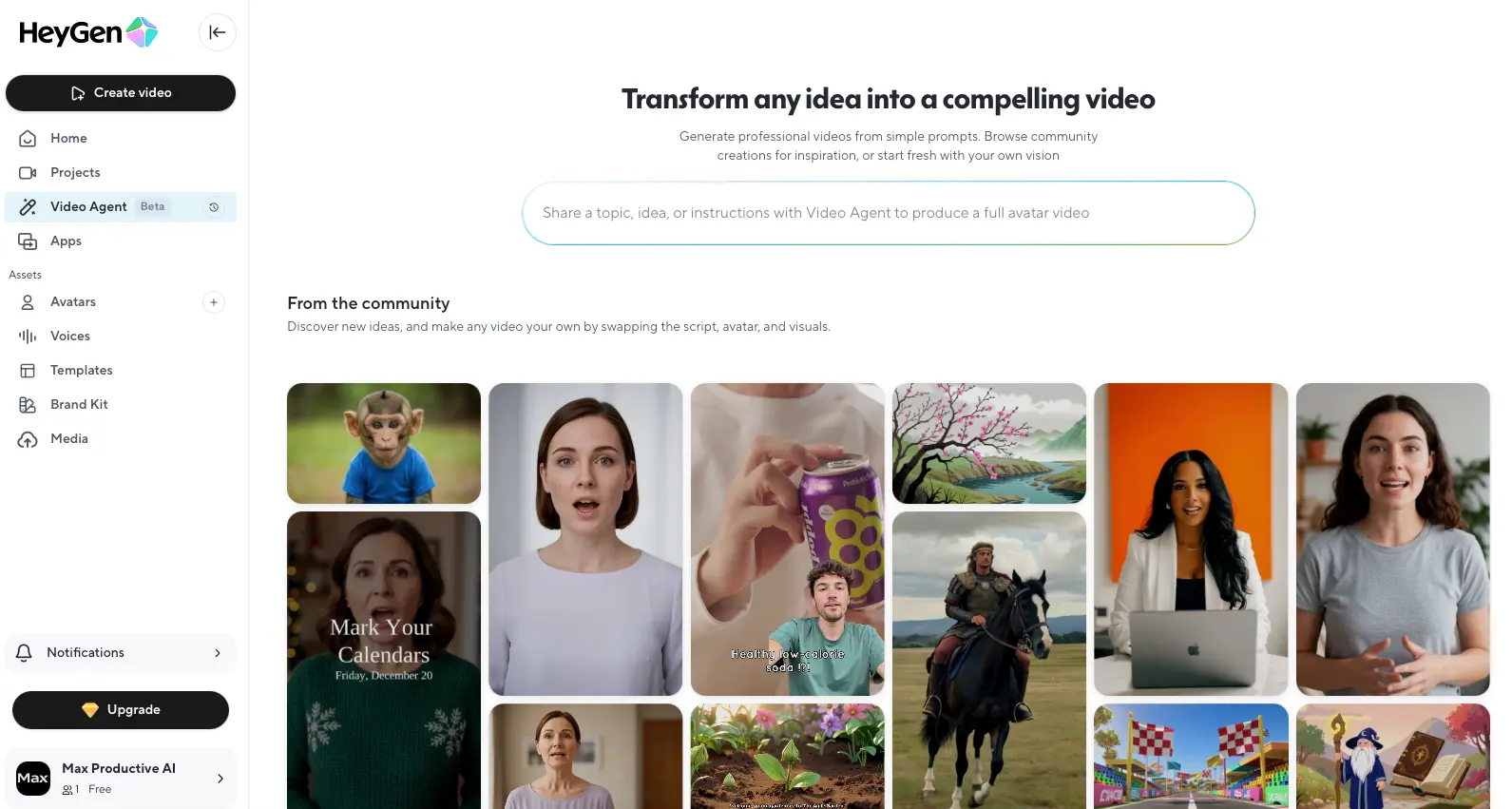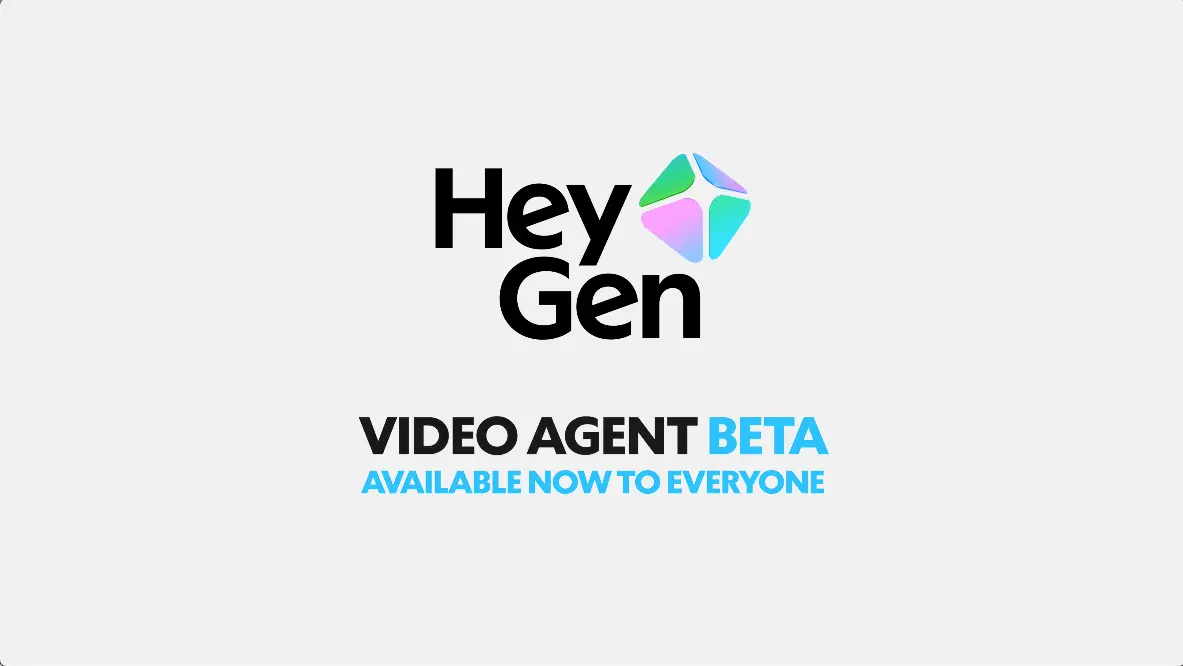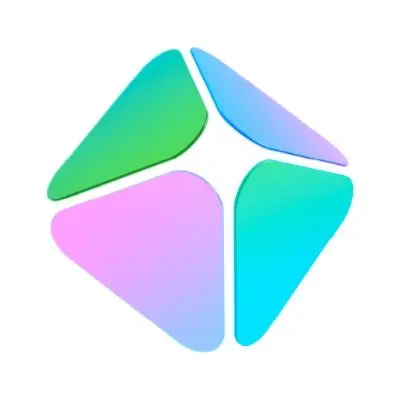HeyGen Launches Video Agent Beta and Acquires Alisa: What This Means for AI Video Creation
Updated: September 24, 2025

Affiliate Disclosure: This article contains affiliate links. If you click through and make a purchase, we may earn a commission at no additional cost to you. This helps us maintain independent reviews and continue providing valuable content.
HeyGen made two significant announcements on September 16, 2025: the launch of Video Agent Beta and the acquisition of Alisa, a company specializing in AI content agents. These developments represent a notable shift in HeyGen's approach to AI video creation, moving from tool-based workflows to conversational video production.
Understanding Video Agent Beta: A New Approach to Video Creation
HeyGen's Video Agent introduces a conversational interface for video production. Instead of navigating multiple tools and settings, users can describe what they want in plain text, and the system handles the technical execution. The platform manages scriptwriting, avatar selection, voice synthesis, visual composition, pacing, captions, and editing within a single workflow.

The interface shows a straightforward prompt field where users can "Share a topic, idea, or instructions with Video Agent to produce a full avatar video." The system then processes this input to create complete videos, automatically formatting them for different platforms (1:1 for Instagram, 9:16 for TikTok, 16:9 for YouTube).
What distinguishes Video Agent from other AI video creation tools is its end-to-end processing. Rather than requiring users to assemble clips or manage multiple exports manually, it handles the entire production pipeline. The system also includes features for brand consistency, compliance checks, and multi-language support.
For context on HeyGen's existing capabilities, you can read our detailed HeyGen review, which covers the platform's core features before this update.
The Alisa Acquisition: Technical and Strategic Implications
The acquisition of Alisa brings specific technical capabilities to HeyGen's platform. Bin Liu, Alisa's former CEO and co-founder, joins HeyGen as VP of Product Engineering. His team spent 2.5 years developing AI agents focused on transforming ideas into publishable content.
Liu's background includes serving as Head of Content & Creators at Pinterest, where he observed the challenges creators face when adapting to video content. This experience informed Alisa's development direction, focusing on reducing the technical barriers to video production.
The acquisition announcement states that Alisa's technology will be integrated into Video Agent, though specific technical details about the integration timeline and feature rollout haven't been disclosed.
Key Integration Points Between HeyGen and Alisa
Avatar Technology Meets Content Intelligence
The combination of Alisa's content generation capabilities with HeyGen's avatar technology creates a more integrated production system. HeyGen's avatars, including Avatar IV and Digital Twin features, can now be directed by Alisa's content intelligence to produce videos with improved coherence and contextual awareness.
The system aims to produce more natural performances, including appropriate gestures, eye movements, and pacing. This builds on HeyGen's existing work in AI video translation with lip sync, extending those capabilities into full video production.
Workflow Automation
The AI creative operating system concept means Video Agent can maintain context throughout a project, remember brand guidelines, and apply consistent styling across multiple videos. Users can request revisions through the chat interface without starting over or losing previous work.

Target Users and Use Cases
The HeyGen 2025 update targets several user groups with specific needs:
- Small Business Owners: Create product demonstrations, social media content, and marketing materials without hiring video production teams.
- Content Creators: Maintain consistent posting schedules by reducing video production time from days to hours.
- Marketing Teams: Generate multiple versions of campaigns for A/B testing and localization without proportional increases in production time.
- Educators: Develop course content and training materials that can be easily updated and translated.
- Corporate Communications: Produce internal communications, training videos, and announcements with consistent branding.
Visual Rebrand: Beyond Aesthetics

HeyGen's visual rebrand introduces a prism-based logo design. According to the company, this represents how a single idea can be transformed into multiple creative outputs. The new branding appears across all platform touchpoints, signaling a shift from positioning as a tool provider to a more comprehensive video creation platform.
Practical Workflow Example
Here's how Video Agent might handle a typical video request:
- Input: User describes a product announcement video needed in English and Spanish
- Processing: System generates script based on product information
- Avatar Selection: Chooses appropriate presenter from available options
- Production: Creates video with synchronized speech and gestures
- Localization: Generates Spanish version with proper lip-sync
- Export: Delivers videos formatted for multiple platforms
This process, which traditionally might take several days with multiple tools and team members, can now be completed in a few hours with HeyGen's automated video production system.
Pricing Structure and Feature Tiers
HeyGen maintains accessibility with a free tier while offering professional features through paid plans:
Free Plan
Perfect for testing the platform
- 3 videos per month
- Videos up to 3 minutes
- 720p video export
- Standard video processing
- Access to Avatar IV video generation
Professional Plan
$29/month - Best for creators
- Unlimited videos
- Videos up to 30 minutes
- 1080p video export
- Fast video processing
- 1 Custom Video Avatar
- 1 Custom Interactive Avatar
- 700+ Stock Video Avatars
- Voice cloning
- 175+ languages and dialects
- Watermark removal
- Brand Kit
This pricing positions HeyGen competitively among other top video generators available in the market.
Beta Program Participation
The Video Agent beta is open to all users immediately, which differs from many beta programs that limit access. This approach allows HeyGen to gather diverse feedback while giving users early access to new features.
Beta participants can influence development through feedback and feature requests. The company has emphasized that user input will shape the platform's evolution, though specific feedback mechanisms and implementation timelines haven't been detailed.
Technical Architecture Overview
While detailed technical specifications haven't been released, Video Agent appears to utilize several AI technologies:
- Natural Language Processing: Interprets user prompts and generates appropriate scripts
- Computer Vision: Manages visual composition and avatar movements
- Speech Synthesis: Creates natural-sounding voiceovers in multiple languages
- Machine Learning: Adapts to user preferences and improves output quality over time
- Cloud Processing: Handles rendering and export without requiring local computing power
Market Position and Competition
The HeyGen Alisa acquisition strengthens the platform's position in the AI video market. While many competitors offer individual features like avatar creation or voice synthesis, HeyGen's integrated approach reduces the need for multiple tools.
However, challenges remain. The platform must prove that conversational interfaces can consistently produce professional-quality videos. Early beta feedback will be crucial in determining whether Video Agent can deliver on its promises at scale.
When compared to other options in our AI video tools directory, HeyGen's chat-based approach represents a different philosophy, prioritizing ease of use over granular control.
Integration Capabilities
The platform documentation mentions several integration possibilities:
- Content management systems for direct publishing
- Marketing automation platforms for campaign management
- Social media scheduling tools for distribution
- Analytics platforms for performance tracking
- Collaboration tools for team workflows
These integrations, when fully implemented, would position Video Agent as a central component of content operations rather than a standalone tool.
Expected Development Trajectory
Based on the announcements and Bin Liu's stated vision at HeyGen, several developments seem likely:
- Improved contextual understanding for more accurate video generation
- Enhanced brand management features for enterprise users
- Collaborative features for team-based video production
- Performance analytics integrated into the creation workflow
- Expanded asset libraries and customization options
Best Practices for Beta Users
For those testing the Video Agent beta, consider these practical approaches:
Pro Tips: Be specific in prompts including details about tone, audience, and objectives. Test incrementally starting with simple videos before attempting complex projects. Document issues to help improve the platform. Compare outputs by testing the same prompt multiple times to understand consistency. Explore limits by trying different video lengths and styles to understand capabilities.
Cost Analysis for Different User Types
The economic implications vary by user category:
- Individual Creators: The free tier allows testing without investment. At $29/month, the paid plan costs less than a single hour of professional video editing.
- Small Businesses: Replacing even partial video production costs could save hundreds to thousands monthly.
- Enterprises: While pricing for enterprise tiers hasn't been announced, the potential for scaling video production without proportional cost increases could be significant.
- Agencies: The ability to handle more clients without expanding production teams presents interesting possibilities, though quality consistency will be crucial.
Current Limitations and Considerations
As with any beta release, Video Agent likely has limitations:
- Output quality may vary depending on prompt complexity
- Certain video styles or formats might not be fully supported
- Processing times could fluctuate during peak usage
- Integration features may be limited initially
- Learning curve for optimal prompt writing
Understanding these limitations helps set realistic expectations while the platform develops.
Privacy and Ethical Considerations
HeyGen has outlined several safeguards for the Video Agent beta:
- Content authentication to identify AI-generated videos
- Usage rights clarification for generated content
- Data protection for uploaded brand assets
- Guidelines against creating misleading content
- Consent protocols for custom avatar creation
These measures address some concerns about AI-generated content, though ongoing monitoring will be necessary as the technology evolves.
Frequently Asked Questions
What is HeyGen Video Agent?
Video Agent is HeyGen's new conversational interface for creating complete videos from text prompts. It handles scriptwriting, avatar selection, voice synthesis, editing, and multi-format export in a single workflow.
How much does HeyGen Video Agent cost?
HeyGen offers a free plan with 3 videos monthly (up to 3 minutes, 720p). The professional plan costs $29/month for unlimited videos up to 30 minutes in 1080p, plus 700+ avatars, voice cloning, and 175+ languages.
What does the Alisa acquisition mean for users?
The Alisa acquisition brings AI content agent technology to HeyGen, enabling better contextual understanding and more coherent video generation. Former Alisa CEO Bin Liu now leads Video Agent development as VP of Product Engineering.
Do I need video editing skills to use Video Agent?
No, Video Agent is designed for users without technical skills. The conversational interface allows video creation through natural language descriptions rather than traditional editing tools.
How many languages does Video Agent support?
The paid plan includes support for 175+ languages and dialects, with automatic translation and lip-sync capabilities for creating multilingual content.
Is Video Agent beta available now?
Yes, the beta launched on September 16, 2025, and is immediately available to all users with both free and paid options.
What video formats can Video Agent create?
Video Agent automatically formats videos for different platforms: square (1:1) for Instagram, vertical (9:16) for TikTok/Reels, and horizontal (16:9) for YouTube/LinkedIn.
How fast is video generation with Video Agent?
Generation time varies by complexity. Simple videos may be ready in minutes, while complex productions take longer. The system provides previews quickly while processing final versions in the background.
Can I create a custom avatar?
Yes, the paid plan includes creation of 1 Custom Video Avatar and 1 Custom Interactive Avatar, plus access to 700+ stock avatars.
Will Video Agent improve over time?
As a beta product, Video Agent will evolve based on user feedback and continued development. HeyGen has stated that user input will directly influence feature development and improvements.
Conclusion: A Practical Step Forward in AI Video Creation
The HeyGen Video Agent beta launch and Alisa acquisition represent a meaningful development in AI-powered video creation. By combining conversational interfaces with comprehensive video production capabilities, HeyGen is addressing real pain points in content creation.
The integration of Alisa's technology with HeyGen's existing avatar and voice capabilities creates a more cohesive production system. While it's too early to fully assess the impact, the approach shows promise for reducing the time and technical knowledge required for video production.
For businesses and creators looking to increase video output without proportional increases in resources, Video Agent offers an interesting option. The free tier allows risk-free testing, while the $29/month professional plan provides extensive features at a fraction of traditional video production costs.
As with any beta product, expectations should be balanced. The technology will likely improve through user feedback and continued development. Early adopters have the opportunity to shape the platform's direction while gaining access to potentially valuable video creation capabilities.
The success of Video Agent will ultimately depend on its ability to consistently deliver quality videos that meet professional standards. If HeyGen can achieve this while maintaining the simplicity of conversational interfaces, it could indeed change how many organizations approach video content creation.